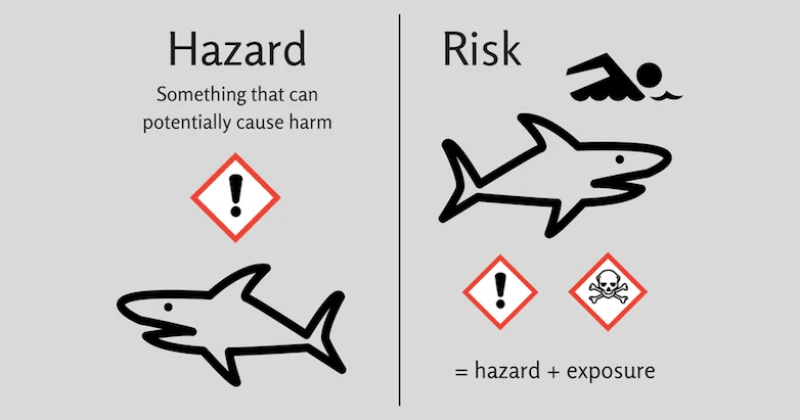Viewpoint: Hazard vs risk—What Europe gets wrong about pesticide safety
Viewpoint: Hazard vs risk—What Europe gets wrong about pesticide safety


When reading articles, blog posts, or policy papers related to the use of pesticides, we often hear the word “hazard”. “Highly-hazardous” chemicals or substances are in the focus of many environmental groups, who demand that the EU cleans up its act on the alleged ‘poison’ in our food. Theirs is a misunderstanding of the scientific meaning of “hazard” and “risk”
Risk-based regulation manages exposure to hazards. For instance, the sun is a hazard when going to the beach, yet sunlight enables the body’s production of vitamin D and some exposure to it is essential to human health. As with everything else, it is the amount of exposure that matters. A hazard-based regulatory approach to sunlight would shut us all indoors and ban all beach excursions, rather than caution beach-goers to limit their exposure by applying sunscreen. The end result would be to harm, not protect human health.
The same logic of hazard-based regulation is all too often applied in crop protection regulation, where it creates equally absurd inconsistencies. For instance, if wine was sprayed on vineyards as a pesticide, it would have to be banned under EU law, as alcohol is a known and quite potent carcinogen at high levels of consumption.
By ignoring the importance of the equation Risk = Hazard x Exposure, hazard-based regulation does not follow a scientifically sound policy-making approach.
Read the original post

 | Videos | More... |

Video: Nuclear energy will destroy us? Global warming is an existential threat? Chemicals are massacring bees? Donate to the Green Industrial Complex!
 | Bees & Pollinators | More... |

GLP podcast: Science journalism is a mess. Here’s how to fix it

Mosquito massacre: Can we safely tackle malaria with a CRISPR gene drive?

Are we facing an ‘Insect Apocalypse’ caused by ‘intensive, industrial’ farming and agricultural chemicals? The media say yes; Science says ‘no’
 | Infographics | More... |

Infographic: Global regulatory and health research agencies on whether glyphosate causes cancer
 | GMO FAQs | More... |

Why is there controversy over GMO foods but not GMO drugs?

How are GMOs labeled around the world?

How does genetic engineering differ from conventional breeding?
 | GLP Profiles | More... |

Alex Jones: Right-wing conspiracy theorist stokes fear of GMOs, pesticides to sell ‘health supplements’




 Trust issues: What happens when therapists use ChatGPT?
Trust issues: What happens when therapists use ChatGPT? Fighting deforestation with CO2: Biotechnology breakthrough creates sustainable palm oil alternative for cosmetics
Fighting deforestation with CO2: Biotechnology breakthrough creates sustainable palm oil alternative for cosmetics California, Washington, Oregon forge immunization alliance to safeguard vaccine access against federal undermining
California, Washington, Oregon forge immunization alliance to safeguard vaccine access against federal undermining Viewpoint — Fact checking MAHA mythmakers: How wellness influencers and RFK, Jr. undermine American science and health
Viewpoint — Fact checking MAHA mythmakers: How wellness influencers and RFK, Jr. undermine American science and health 30-year-old tomato line shows genetic resistance to devastating virus
30-year-old tomato line shows genetic resistance to devastating virus Viewpoint: Video — Big Solar is gobbling up productive agricultural land and hurting farmers yet providing little energy or sustainabilty gains
Viewpoint: Video — Big Solar is gobbling up productive agricultural land and hurting farmers yet providing little energy or sustainabilty gains The free-range chicken dilemma: Better for birds, but with substantial costs
The free-range chicken dilemma: Better for birds, but with substantial costs ‘You have to treat the brain first’: Rethinking chronic pain with Sanjay Gupta
‘You have to treat the brain first’: Rethinking chronic pain with Sanjay Gupta
